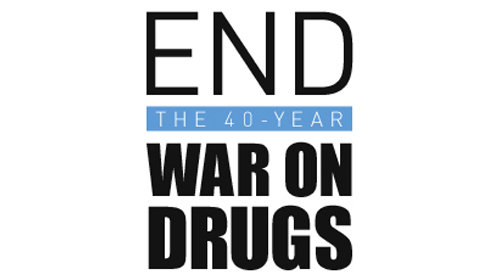
In 1971, Richard Nixon declared a war, couched in terms that suggested that the onslaught of attacks would target and eliminate the presence of drugs in our country. But the so-called War on Drugs, it turned out, was given a deceiving title. Nixon had instead initiated a full-fledged war on the American people, one that has continued in full force for more than four decades, systematically targeting, punishing and marginalizing hundreds of thousands of our citizens – predominately people of color and in poverty. In recent years, critics of this misguided war have become increasingly vocal, spurring an outpouring of calls to end the government’s harmful, needless and costly battle on American citizens. Now, the tragic complexity of this failed war has been captured on film by director Eugene Jarecki in his award-winning documentary, The House I Live In, making its debut in theaters this Friday. The film compellingly documents the wasteful War on Drugs from numerous critical angles by bearing witness to the stories of prison guards and prisoners, judges and police officers, and the families left behind after their loved ones were thrown in prison.
The ACLU’s Zeke Edwards spoke with Jarecki for this podcast.
Awarded the Grand Jury Prize for Best Documentary at the 2012 Sundance Film Festival, the film reaches back beyond Nixon’s infamous declaration to trace more than a century of the American government’s insidious practice of persecuting and alienating ethnic minorities under the guise of drug law enforcement. From the opium laws of the late 1800’s, put in place to inconvenience and disenfranchise Chinese immigrants, to the surplus of laws and policies in place today that alienate poor Americans of color, Jarecki’s work shows that the drug war has actually not been about drugs at all, but about the social control of disfavored communities. In tandem with fear-mongering politicians who have willingly and successfully perpetuated Nixon’s gospel on their paths to public office, drug laws and their ruthless enforcement have operated to make the United States the leading incarcerator in the world. In examining the impact of the War on Drugs in states across the country, The House I Live In explicitly depicts a war that is not merely rural or urban, or black or brown or white, but American.
Jarecki’s stunning documentary could not have arrived at a better time – unless, of course, it could have arrived sooner. As he notes in our podcast, “No system in America more grotesquely represents our misguided priority of profit over people than the prison industrial system.” And this system could not thrive as it does without the arrest, prosecution and imprisonment of drug offenders. His perspective is increasingly shared by Democrats and Republicans alike, many of whom have admitted the failure of tough-on-crime rhetoric, and are now reaching across the aisles to collaboratively dismantle this deeply-rooted system. But conservative politicians aren’t the only unexpected allies who have emerged as voices of dissent in the War on Drugs. As The House I Live In so clearly illustrates, the very judges, police officers, and prosecutors employed by this failed system are also speaking out against it. While such long-awaited progress has been promising, it has been too incremental. Mass incarceration, and the Drug War as one of its key catalysts, should be one of top reform priorities of our government, and our society more broadly.
The House I Live In emphasizes how deeply the catastrophic impact of the War on Drugs is felt every day throughout the country, in our courts, our prisons and our living rooms; by police, by people incarcerated for decades – if not life – for nonviolent drug crimes, and by the children of incarcerated parents. We are running out of time to be satisfied merely by piecemeal tweaks to laws and policies, important as those may be, and it is not enough to simply acknowledge that our criminal justice system is out of control. The voices documented by The House I Live In urgently remind us that our reform efforts must be accelerated, the War on Drugs must end, and that it is time for America to engage in nation-building (and nation healing) – right here at home.
Learn more about the war on drugs: Sign up for breaking news alerts, follow us on Twitter, and like us on Facebook.


